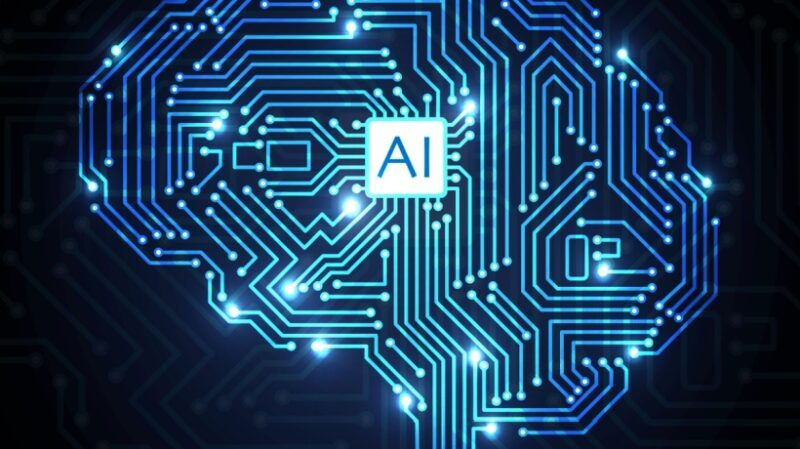The Future Of Research: How AI Is Empowering Scholars


The Rise Of AI In Online Learning And Research
The methods by which we conduct research are rapidly changing. The environment of professional and academic research is changing significantly as a result of digital innovations, particularly Artificial Intelligence (AI). AI isn’t just a futuristic catchphrase; it’s a potent instrument that’s improving the speed, ease, and accuracy of information discovery. AI is making things easier in ways we never thought possible, and influencing the future of research whether you’re a professional seeking precise insights or a student trying to make sense of an overwhelming quantity of research articles.
The Rise Of AI In eLearning And Research
Finding the appropriate academic resources can still be a difficult endeavor, even if online learning has made high-quality education available to people all over the world. AI-driven technologies are taking over to improve the efficiency and intelligence of research.
AI’s sophisticated search capabilities enable it to quickly extract only the most pertinent information from vast volumes of data. You may now concentrate on what truly matters—understanding and using the knowledge—instead of wasting hours reading countless academic papers. By assisting users in finding, summarizing, and deconstructing intricate research papers into essential takeaways, AI-driven research assistants are revolutionizing the field and guaranteeing that insightful information is always available.
Personalized Learning And Smarter Research
One of the main advantages of AI in eLearning is personalization. Adaptive algorithms tailor recommendations to each learner’s needs by analyzing user behavior. Because researchers and students will have access to the most relevant papers, journals, and references, they will spend less time searching for information. Additionally, AI-powered summarization techniques simplify complex papers into insights that are simple to understand.
AI-Powered Research Assistants
Let’s face it: reading through mountains of scholarly articles and business reports may be draining. AI research assistants make this procedure easier by quickly evaluating and gleaning important information from a variety of sources.
In addition to expediting research, these AI-powered tools enable interactive and conversational user interaction with scholarly information. Researchers can now highlight important discoveries, ask follow-up questions to delve deeper into a topic, and receive straightforward explanations rather than having to struggle to make sense of thick material.
AI As A Productivity Booster In Research
Beyond accessibility, AI is a game changer when it comes to boosting productivity. Tasks like citation management, literature reviews, and even identifying emerging research trends have been streamlined, allowing researchers to focus on deeper analysis and innovation.
AI-powered platforms help users validate sources, spot patterns, and create structured reports with greater accuracy. For busy professionals juggling multiple responsibilities, this shift is a huge advantage, freeing them from tedious admin work and letting them stay ahead in their fields.
Smarter Content Curation And Discovery
Let’s face it—sifting through a flood of academic content can be overwhelming. AI-driven curation tools help by filtering out the noise and bringing only the most relevant, high-quality materials to your attention.
Instead of spending hours hunting for the right papers, researchers can rely on AI to suggest essential readings and provide intuitive ways to engage with academic content. This means more time spent on learning and applying knowledge, rather than just searching for it.
Enhancing Collaboration With AI
AI isn’t just making solo research easier—it’s also revolutionizing teamwork in academia and professional fields. AI-powered collaboration tools allow researchers to work together seamlessly, regardless of location, helping them analyze data, coauthor papers, and share insights more efficiently.
With AI-enhanced platforms making knowledge sharing smoother, teams can refine research methods, improve communication, and accelerate discoveries. As AI-driven collaboration continues to evolve, cross-border research partnerships are set to become even more impactful.
The Future Of Research With AI
As AI technology advances, its role in research will only grow stronger. Future developments like enhanced Natural Language Processing, improved data visualization, and even AI-assisted hypothesis testing are set to take research efficiency to the next level. But rather than replacing human intelligence, these tools will complement it, making research smarter and more insightful.
For anyone navigating today’s research landscape, embracing AI-driven tools is no longer just an option—it’s becoming a necessity. These intelligent assistants are helping researchers and professionals work smarter, ensuring that knowledge isn’t just available but truly useful.
By integrating AI into research methodologies, scholars and professionals can unlock new levels of efficiency, drive innovation, and contribute meaningfully to global knowledge. The future of research is here, and AI-powered solutions are leading the way toward a more intelligent and connected academic world.
Editor’s Note: The opinions expressed in this article are the author’s personal views, and are not a reflection of eLearning Industry’s position.









